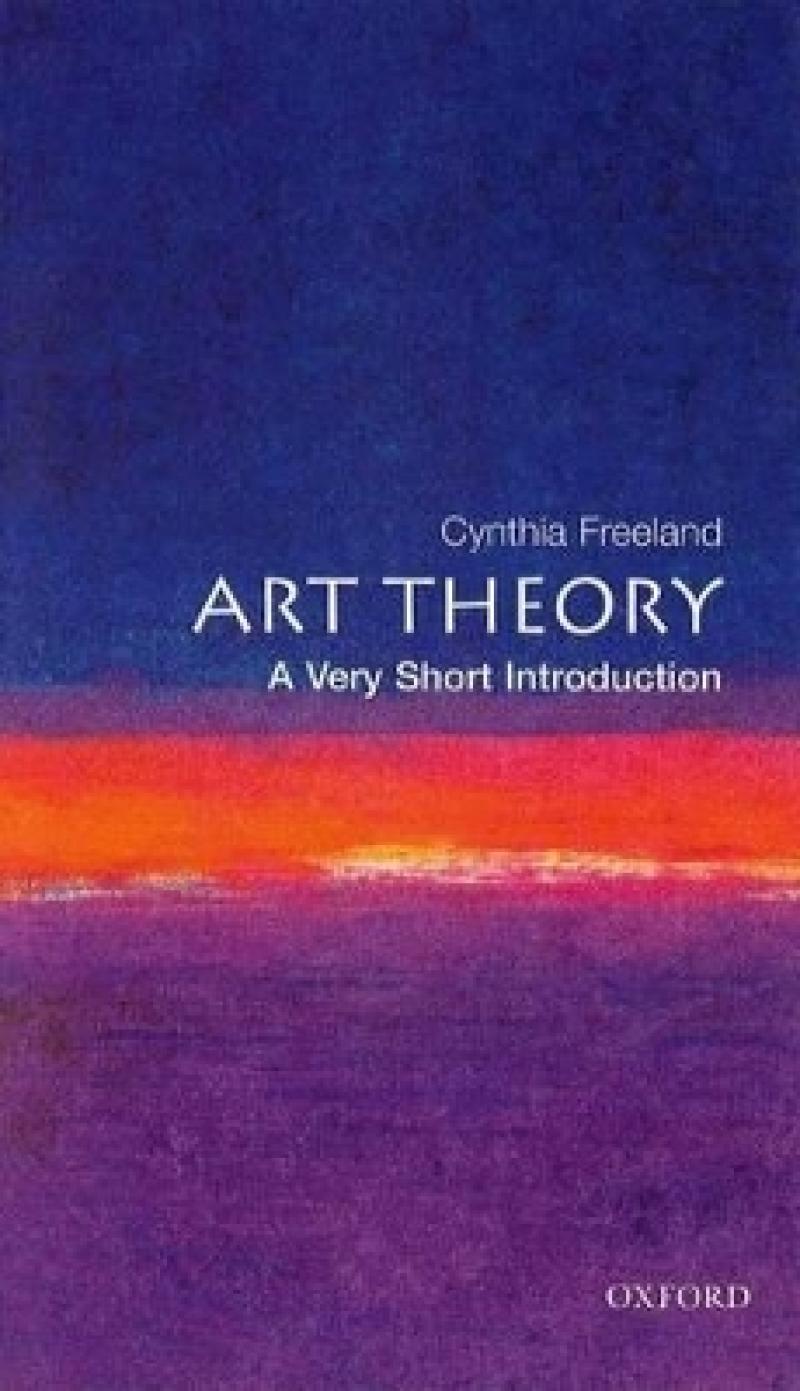In today's art world many strange, even shocking, things qualify as art. In this Very Short Introduction Cynthia Freeland explains why innovation and controversy are valued in the arts, weaving together philosophy and art theory with many fascinating examples.
She discusses blood, beauty, culture, money, museums, sex, and politics, clarifying contemporary and historical accounts of the nature, function, and interpretation of the arts. Freeland also propels us into the future by surveying cutting-edge web sites, alongside the latest research on the brain's role in perceiving art.
This clear, provocative book engages with the big debates surrounding our responses to art and is an invaluable introduction to anyone interested in thinking about art.
ABOUT THE SERIES: The Very Short Introductions series from Oxford University Press contains hundreds of titles in almost every subject area. These pocket-sized books are the perfect way to get ahead in a new subject quickly. Our expert authors combine facts, analysis, perspective, new ideas, and enthusiasm to make interesting and challenging topics highly readable.
Les mer
Explains why innovation and controversy are valued in the arts, bringing together philosophy, art theory, and many examples. This work discusses blood, beauty, culture, money, sex, web sites, and research on the brain's role in perceiving art. It is suitable for the public, introductory students, and teachers in the arts.
Les mer
List of Illustrations ; 1. Blood and Beauty ; 2. Paradigms and Purposes ; 3. Cultural Crossings ; 4. Money, Markets, Museums ; 5. Gender, Genius, and Guerrilla Girls ; 6. Cognition, Creation, Comprehension ; 7. Digitizing and Disseminating ; Conclusion ; References ; Further Reading ; Index
Les mer
Mouthwatering design-compact, colorful, sturdy. Can travel in one's pocket.
`Review from previous edition So many of the questions that define us as a culture have been raised through and by the art of recent decades, that without coming to terms with our art, we can scarcely understand ourselves. Cynthia Freeland has written a very smart book, in which high philosophical intelligence is applied to difficult questions raised by real works of art. It immediately situates the reader where thought and action meet, and since the issues
are inescapable, it should be required reading for everyone.
I know of no work that moves so swiftly and with so sure a footing through the battle zones of art and society today.'
Arthur C. Danto, Columbia University, author of After the End of Art
`This pocket potboiler provides some answers, a lot of questions and plenty of entertainment along the way'
TNT Magazine
`a pacy and readable introduction to art history'
Independent on Sunday
`admirable for its scope, compactness and exceptional clarity. Reader-friendly and thought-provoking'
The Independent
`a book of simplicity and clarity that may well come to rival John Berger's Ways of Seeing as a reader's digest of the rubric of theories that make up contemporary art criticism . . . This is a valuable book for anyone perplexed by the arcane theorising of contemporary art'
Sue Hubbard, The Independent
`a useful crib'
Guardian
Les mer
'profoundly refreshing and satisfying ... Freeland's energetic and engaging voice breezily guides the reader, while employing an astonishing array of examples to illuminate and activate her explications.'
(Don Bacigalupi, Director, San Diego Museum of Art)
Up-to-date and future-oriented: devotes a chapter to art on the web, video art, art museum CD-ROMs and various theorists of the new media and of postmodern art
Illustrated with a wide range of salient images
Discusses topical artists like Andres Serrano and Damien Hirst as well as more historical examples like Goya and Velazquez
The style is clear, lively, and humorous
Les mer
Cynthia A. Freeland is Professor of Philosophy at the University of Houston. She has published on topics in the philosophy of art and film, ancient Greek philosophy, and feminist theory. She is also author of The Naked and the Undead: Evil and the Appeal of Horror (1999) and co-editor of Philosophy and Film (1995).
Les mer
'profoundly refreshing and satisfying ... Freeland's energetic and engaging voice breezily guides the reader, while employing an astonishing array of examples to illuminate and activate her explications.'
(Don Bacigalupi, Director, San Diego Museum of Art)
Up-to-date and future-oriented: devotes a chapter to art on the web, video art, art museum CD-ROMs and various theorists of the new media and of postmodern art
Illustrated with a wide range of salient images
Discusses topical artists like Andres Serrano and Damien Hirst as well as more historical examples like Goya and Velazquez
The style is clear, lively, and humorous
Les mer
Produktdetaljer
ISBN
9780192804631
Publisert
2003
Utgiver
Vendor
Oxford University Press
Vekt
142 gr
Høyde
177 mm
Bredde
112 mm
Dybde
11 mm
Aldersnivå
G, 01
Språk
Product language
Engelsk
Format
Product format
Heftet
Antall sider
192
Forfatter
